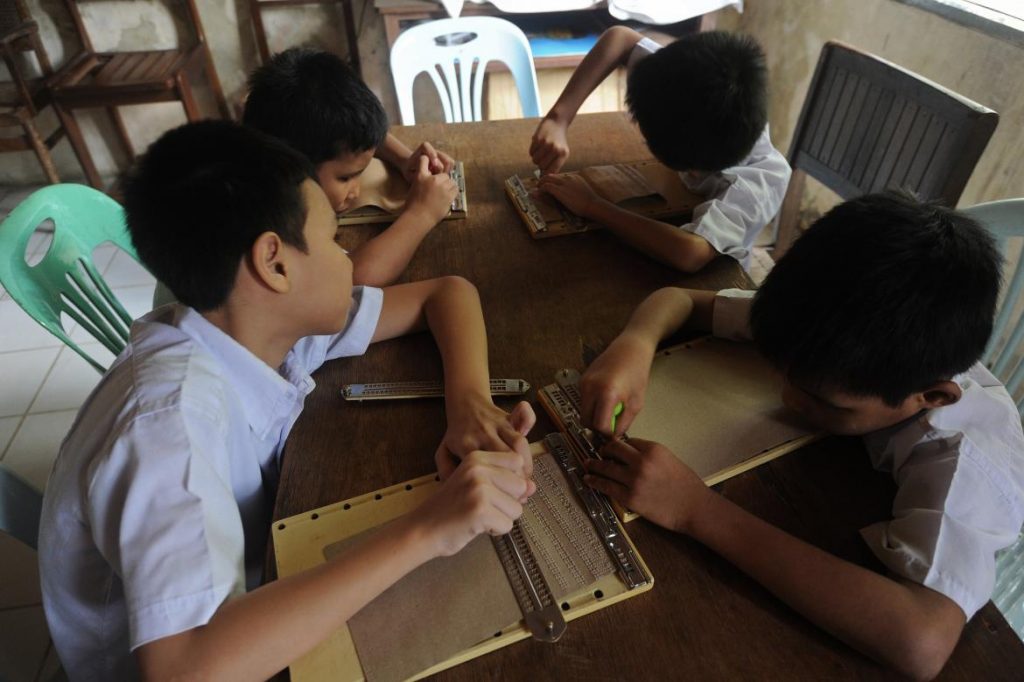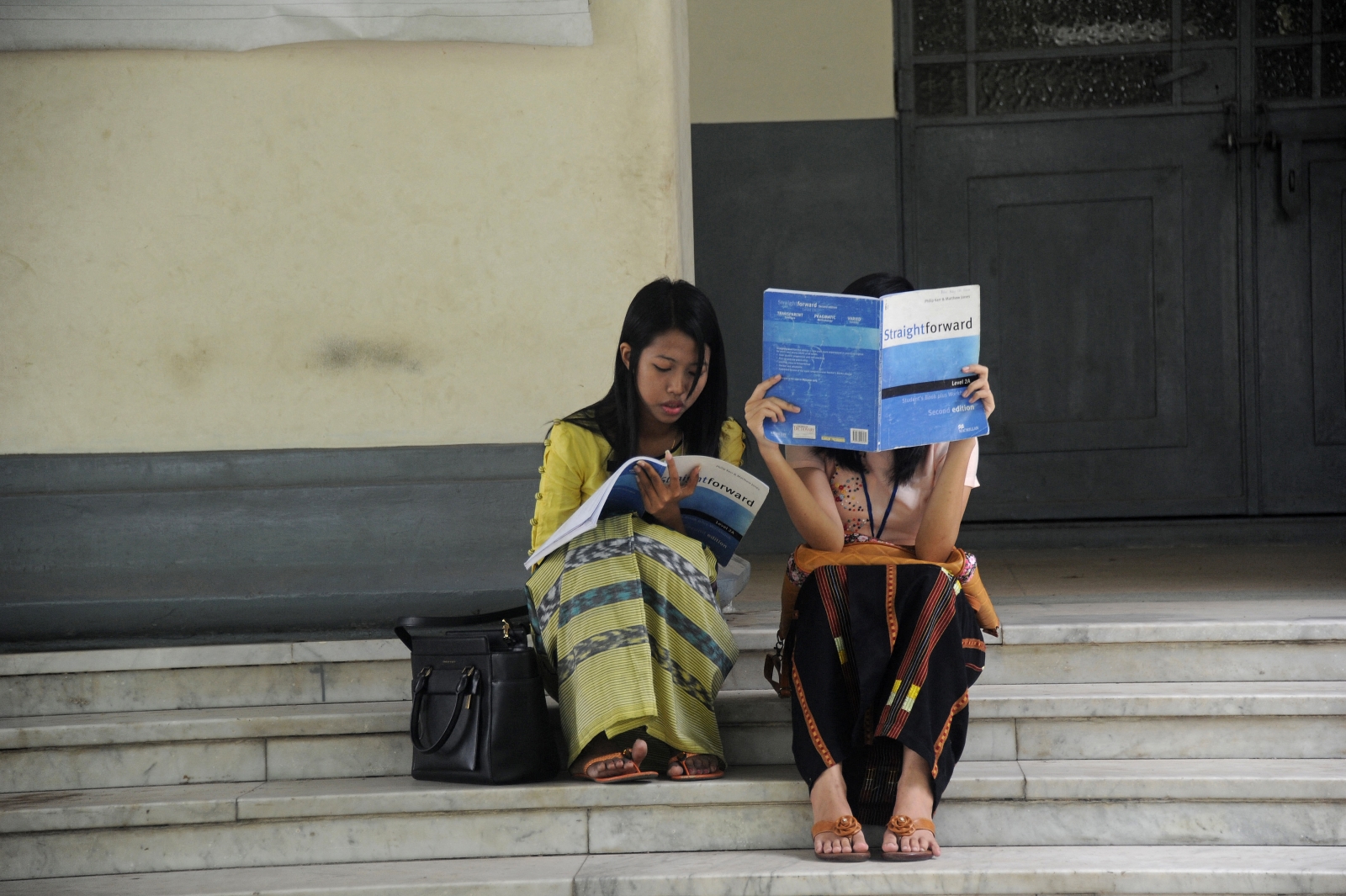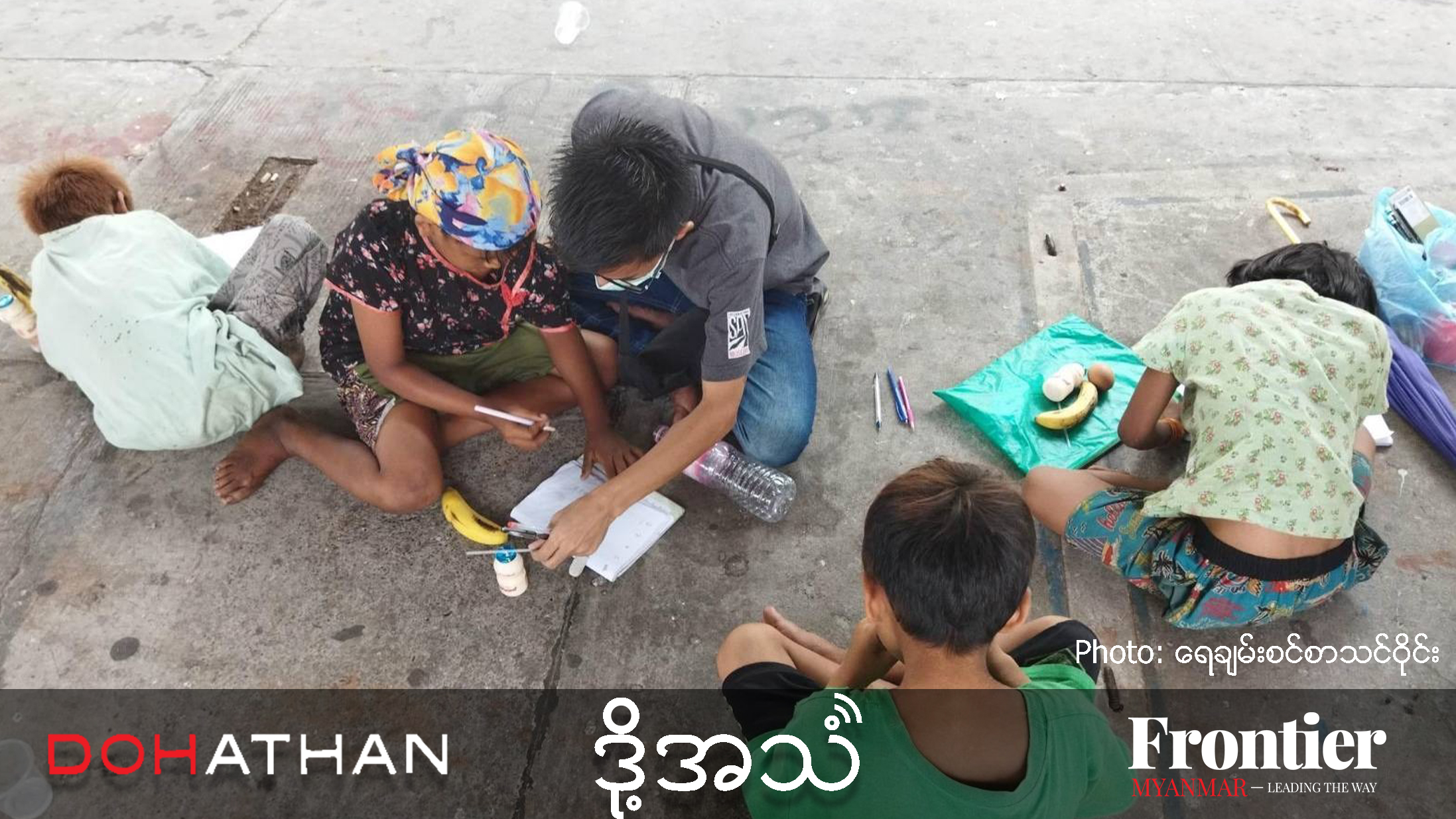The Ministry of Education has generated controversy with an ad that discriminates against the disabled in apparent contravention of the 2008 Constitution and Myanmar’s obligations under a UN convention.
By THI KHA | FRONTIER
MA MOH MOH is among the tiny minority of disabled people in Myanmar with a bachelor’s degree, an achievement she hoped would enable her to fulfil a dream to become a teacher.
It was not to be.
Moh Moh, 23, graduated in 2011 with an English major from Bogalay College in Ayeyarwady Region. She is among the two percent of disabled in Myanmar with a bachelor’s degree, according to a 2010 nationwide survey conducted by the Ministry of Social Welfare, Relief and Resettlement.
Her dream was destroyed when her application to be trained as a teacher was rejected because she has an extra digit on her left hand, a condition known as polydactyly.
Support more independent journalism like this. Sign up to be a Frontier member.
The rejection was also a big disappointment for her parents, both of whom are teachers.
Moh Moh is bitter about her experience.
“I would not complain if I had an obvious deformity; it should not be a big black mark against me, but they pointed it out and rejected me for the training,” she told Frontier, referring to her hand.
“I am an educated person and I wanted to become a teacher to use what I have learned for the benefit of the country.”
Critics say that Ministry of Education policy regularly discriminates against people with disabilities. Schools are allowed to refuse to accept an enrolment application from a child with a disability if they feel they cannot support them. Specialist schools are only available in larger cities and separate children from mainstream schools. As a result, the 2010 ministry report found that of the 2.3 million people with some form of disability 55 percent had no access to education.
But even in this climate, many were taken back by an advertisement last month for applicants for education colleges and teacher training diploma courses, in which the ministry said anyone who had disabilities, was transgender, or lacked what was described as the “typical attributes” of a teacher, need not apply.
The advertisement caused outrage among the disabled community.
It was condemned in a statement released by the Myanmar Federation of Persons with Disabilities at a news conference held in Yangon on February 1.
U Aung Ko Myint, the chair of the MFPD, told the news conference that the advertisement discriminated against the disabled and was a violation of their human rights.
“Disabled people can work for the people and the country; preventing the disabled from training to be teachers also denies them opportunities to get better jobs,” Aung Ko Myint said.
“We love our country, but acting like this amounts to the inhumane treatment of the disabled; we cannot tolerate this,” he said.
The statement, a copy of which was sent to State Counsellor Daw Aung San Suu Kyi on February 6, said the ministry’s advertisement violated the United Nations Universal Declaration on Human Rights, the Convention on the Rights of Persons with Disabilities, and the 2008 Constitution, which states that all citizens “shall enjoy equal opportunity” in public employment.
The advertisement also offended the dignity of the disabled, it said, adding that those with disabilities have the ability and the capacity to work for the country and the community.
The MFPD expressed concern about how it could help the disabled develop livelihoods, participate as equal members of the community and bring an end to discrimination when it was being practised by the Ministry of Education.
“Therefore, we condemn the action of the Ministry of Education and will work within the law to protect the rights of the disabled,” it said, adding that it would use whatever methods were necessary to ensure the government respected the rights of the disabled.
The MPFD has outlined a three-point strategy to achieve its objectives, of which the February 2 news conference was the first. The second is holding a joint workshop with the Ministry of Social Welfare, Relief and Resettlement and the third is to fight for the rights of the disabled within the law.
Dr Khaing Mye, a spokesperson for the Ministry of Education, defended its policy when he responded to the MFPD news conference on state-run radio.
Teachers needed to set a good example in the community and had to be “perfect”, Khaing Mye said later on February 1.
“That is why we need to appoint those with normal hands and feet to be teachers at basic schools,” he said.
Khaing Mye said students at basic and primary schools sometimes had to play with teachers in activities that involved their hands or legs.
“And for mathematics, students have to count numbers using their fingers and based on this teachers need to have all their fingers,” he said.
Myanmar became a signatory to the Convention on the Rights of Persons with Disabilities in December 2011 and the Pyidaungsu Hluttaw enacted the Law on the Rights of Persons with Disabilities in 2015. It stipulates that the disabled will enjoy “the right to access education on an equal basis” and that employers are required to provide equal rights and opportunities. However, the relevant by-laws are yet to be finalised and a national committee for disabled rights is yet to be formed.
Despite the enactment of the disabled rights law in 2015, advocates for those with disabilities insist that further action is needed. First on the list is implementation of by-laws covering the rights of the disabled in the education sector.
Aung San Suu Kyi expressed support for equal rights and opportunities for the disabled in a speech at the inaugural Convention on the Education of Persons with Disabilities held in Nay Pyi Taw on November 23. All people, including disabled children, have the right to dignity and the pursuit of happiness, she said.
The State Counsellor said the right to a full life and opportunity should be instilled in children at a young age to avoid feelings of frustration and inequality later.
It was important to give encouragement to the disabled from an early age, she said.
Society had an obligation to ensure that disabled children believed that they had equal rights and that they enjoyed their rights.
Aung San Suu Kyi also stressed the importance of showing respect.
“Every individual has the right to be treated with respect,” she said.
“In terms of the international outlook on human rights, dignity is innate. Nobody can take dignity away and it cannot be abolished by laws or denunciation. Not respecting another’s dignity is to destroy one’s own dignity. We have a responsibility to ensure that everyone is able to stand on their own value.
“Although the Ministry of Education and the Ministry of Social Welfare, Relief and Resettlement are co-operating, one ministry alone cannot carry out the task and we must all help, hand in hand.”
Unfortunately for people with disabilities, it seems the Ministry of Education hasn’t quite got the message.
TOP PHOTO: Blind and visually impaired students learn to write the Braille alphabet at the Yangon Education Centre for the Blind (Khaweichan) in Yangon in September 2013. (Soe Than Win | AFP)







